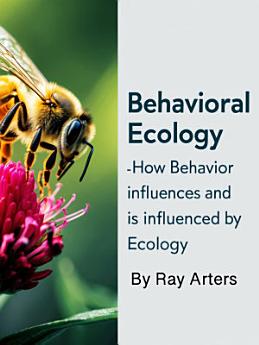Behavioral Ecology: How Behavior Influences and Is Influenced by Ecology
About this ebook
The theoretical foundation of behavioral ecology rests on the principle that natural selection favors behaviors that enhance individual reproductive success, leading to the evolution of strategies that optimize the balance between benefits and costs associated with different behavioral choices. This optimization approach assumes that animals behave as if they were designed to maximize their inclusive fitness, which encompasses both direct reproductive success through personal offspring production and indirect fitness gains through assistance to related individuals who share genes by common descent.
Fitness maximization provides a powerful framework for generating testable predictions about behavioral strategies, though it requires careful consideration of the constraints and tradeoffs that prevent animals from achieving perfect optimization. Physical limitations, phylogenetic constraints, environmental unpredictability, and conflicts between different fitness components create situations where compromise solutions represent the best achievable outcomes rather than theoretical optima.








